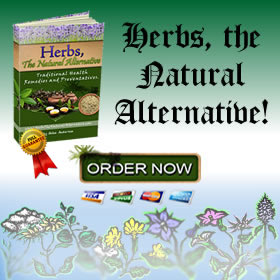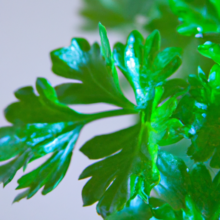Getting Started with Herbalism
Are you interested in the world of herbalism but don’t know where to begin? Well, you’ve come to the right place! In this article, we’ll be discussing how you can start learning about herbalism and dive into this fascinating field. So, let’s get started!
Before we delve into the details, let me give you a brief overview of what herbalism is all about. Essentially, herbalism is the practice of using plants and their extracts for medicinal and healing purposes. It’s an ancient practice that has been used for centuries by different cultures around the world. Now, if you’re intrigued and want to explore this field further, you’re in for a treat! In the rest of this article, we’ll be sharing some tips and resources to help you embark on your journey into the world of herbalism. So, keep reading to discover more about this exciting field and how you can get started!

What is herbalism?
Herbalism is the practice of using plants and plant-based remedies to promote health and well-being. It is a holistic approach to healing that dates back thousands of years and is rooted in the belief that nature provides us with everything we need to support our bodies’ natural healing abilities.
Definition of herbalism
Herbalism, also known as botanical medicine or phytotherapy, involves the use of medicinal plants to prevent and treat various health conditions. It encompasses the knowledge and application of herbal remedies, including the use of plants, flowers, roots, leaves, and bark to promote healing and support overall wellness.
Purpose and benefits
The purpose of herbalism is to enhance and maintain health through the use of natural remedies. Herbal remedies offer numerous benefits, including:
Holistic approach to health: Herbalism views the body, mind, and spirit as interconnected and focuses on treating the whole person rather than just the symptoms of a particular ailment.
Natural remedies and healing: Herbal remedies are derived from plants and are considered a more natural alternative to conventional medicine. They often have fewer side effects and can support the body’s own healing processes.
Supporting the body’s self-healing abilities: Herbalism works by stimulating the body’s innate healing abilities and promoting balance within the body. It aims to address the root cause of an ailment rather than merely treating the symptoms.
History of herbalism
Herbalism has deep roots in human history, with evidence of its practice dating back to ancient civilizations such as the Egyptians, Greeks, and Chinese. Early herbalists learned through trial and error, observing the effects of different plants on the body and passing down their knowledge through generations.
Herbalism has been an integral part of traditional systems of medicine, such as Ayurveda, Traditional Chinese Medicine (TCM), and Native American medicine. These systems have developed a vast body of knowledge about the properties and uses of specific herbs for various health conditions.
Getting started with herbalism
If you’re interested in herbalism and want to start learning, here are some steps you can take to get started:
Understanding basic concepts
Begin by familiarizing yourself with the basic principles of herbalism. This includes learning about the energetics of plants, the different parts of a plant used for medicinal purposes, and the methods of herbal preparation. Understanding the key concepts will lay the foundation for your herbal journey.
Exploring different herbal traditions
Herbalism has a rich tradition that varies across different cultures and regions. Take the time to explore different herbal traditions, such as Ayurveda, TCM, Western herbalism, and Native American herbalism. Each tradition offers unique perspectives and insights into the world of herbal medicine.
Building a solid foundation of knowledge
As you delve deeper into the world of herbalism, it’s important to build a solid foundation of knowledge. This includes studying the properties, actions, and uses of different herbs, as well as learning about herbal safety and contraindications. Books, online courses, and workshops are great resources to help expand your understanding.

Essential tools for herbalism
To fully embrace herbalism, there are a few essential tools that you will need:
Identifying and harvesting herbs
Learn to identify common medicinal herbs in your local area and understand their growing habits and seasonal availability. Being able to confidently identify herbs in the wild or in your garden is essential for harvesting them safely and responsibly.
Preparing herbal remedies
Once you have harvested your herbs, you’ll need to know how to prepare them to extract the medicinal properties. This can be done through various methods such as making teas, tinctures, infusions, decoctions, salves, and poultices. Understanding the different preparation techniques is key to creating effective herbal remedies.
Creating an apothecary
As you gather more herbs and expand your repertoire of remedies, it’s useful to create an apothecary – a collection of dried herbs, tinctures, and other herbal preparations. Organize your supplies in a way that makes it easy for you to access and use them when needed.
Herbal remedies for common ailments
Herbalism offers a wide range of remedies for common ailments. Here are a few examples:
Herbs for digestive health
Many herbs can support digestive health and alleviate common issues such as indigestion, bloating, and gas. Examples include ginger, peppermint, chamomile, fennel, and dandelion root.
Herbs for stress and anxiety
Herbs such as lavender, chamomile, lemon balm, and passionflower have calming and soothing properties that can help reduce stress and anxiety.
Herbs for respiratory wellness
For respiratory issues, consider using herbs like eucalyptus, thyme, licorice root, and elderberry. These herbs can help relieve congestion and support respiratory health.

Herbs for promoting overall well-being
In addition to addressing specific ailments, herbalism also focuses on promoting overall well-being. Here are some herbs that can support your overall health:
Herbs for boosting the immune system
Herbs like echinacea, elderberry, astragalus, and garlic have immune-boosting properties that can help strengthen your body’s defenses against illnesses.
Herbs for supporting healthy skin
Calendula, aloe vera, comfrey, and chamomile are herbs renowned for supporting healthy skin. They can be used topically in creams, salves, or infused oils to promote skin healing and soothe various skin conditions.
Herbs for promoting relaxation
If you’re looking to unwind and relax, consider using herbs such as lavender, passionflower, valerian root, or chamomile. These herbs have calming properties that can aid relaxation and improve sleep quality.
Herbal safety and precautions
While herbal remedies are generally safe, it’s important to educate yourself on their proper use and potential risks. Here are some key considerations:
Understanding dosage and contraindications
Different herbs have different recommended dosages, and it’s important to follow the guidelines to avoid adverse effects. Some herbs may also have contraindications with certain medications or health conditions, so it’s essential to research and consult credible sources before using them.
Identifying potential side effects
Although considered natural, herbs can still produce side effects in certain individuals, especially when used incorrectly or in large doses. Be aware of common side effects associated with specific herbs and discontinue use if any adverse reactions occur.
Consulting with a qualified herbalist or healthcare provider
If you’re unsure about using herbs or have a specific health condition, it is advisable to consult with a qualified herbalist or healthcare provider. They can provide personalized guidance, recommend appropriate herbal remedies, and ensure that there are no potential interactions with other medications you may be taking.
Exploring herbalism as a career
If you find yourself deeply passionate about herbalism and want to pursue it as a career, here are some considerations:
Herbalist training and education
To become a professional herbalist, formal training and education are highly recommended. There are numerous herbalism programs and courses available that cover topics such as herbal materia medica, clinical herbalism, and herbal formulation. Research and choose a reputable program that aligns with your goals and interests.
Professional opportunities
There are various professional opportunities in the field of herbalism. You can open your own herbal practice, work in a health food store or wellness center, offer herbal consultations, create herbal products, or become a herbal educator. Explore different avenues and consider how you can share your knowledge and skills with others.
Setting up a herbal practice
If you choose to open your own herbal practice, there are several factors to consider, such as legal requirements, business planning, marketing, and building a client base. It’s important to approach it with careful consideration and seek guidance from experienced herbalists or business professionals.
Ethical considerations in herbalism
As an herbalist, it is crucial to approach herbalism with a sense of responsibility and respect for nature and cultural traditions. Here are some ethical considerations to keep in mind:
Sustainable wildcrafting practices
When harvesting wild herbs, it’s important to do so sustainably and ethically. Respect nature and its resources by gathering herbs in a way that minimizes harm to the plant and its ecosystem. Learn about endangered or protected species in your area and avoid harvesting them.
Respecting cultural traditions
Herbalism has deep roots in various cultural traditions, and it’s essential to respect and honor those traditions. Understand that certain plants may hold cultural significance and should be approached with reverence and context.
Promoting fair trade and ethical sourcing
When purchasing herbs or herbal products, prioritize fair trade and ethical sourcing practices. Support companies that prioritize sustainable farming, ethical labor practices, and fair compensation for growers and suppliers.
Conclusion
Embarking on a journey into herbalism is an opportunity to deepen your connection with nature, support your own well-being, and explore the healing power of plants. As you continue to learn and grow, remember to approach herbalism with a sense of curiosity, respect, and responsibility. Embrace herbalism as a way of life and share your knowledge with others, so they too can experience the benefits of this ancient practice. Happy herbal adventures!
Total Word Count: 1594 words




